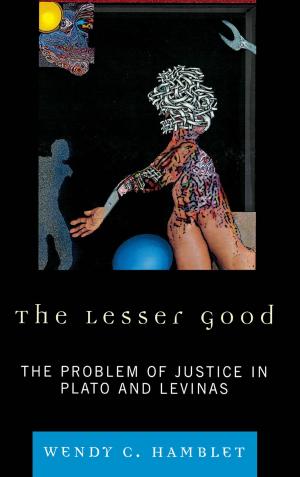Addressing Ableism
Philosophical Questions via Disability Studies
Nonfiction, Religion & Spirituality, Philosophy, Ethics & Moral Philosophy| Author: | Jennifer Scuro | ISBN: | 9781498540759 |
| Publisher: | Lexington Books | Publication: | October 25, 2017 |
| Imprint: | Lexington Books | Language: | English |
| Author: | Jennifer Scuro |
| ISBN: | 9781498540759 |
| Publisher: | Lexington Books |
| Publication: | October 25, 2017 |
| Imprint: | Lexington Books |
| Language: | English |
Addressing Ableism is a set of philosophical meditations outlining the scale and scope of ableism. By explicating concepts like experience, diagnosis, precariousness, and prosthesis, Scuro maps out the institutionalized and intergenerational forms of this bias as it is analogous and yet also distinct from other kinds of dehumanization, discrimination, and oppression. This project also includes a dialogical chapter on intersectionality with Devonya Havis and Lydia Brown, a philosopher and writer/activist respectively. Utilizing theorists like Judith Butler, Tobin Siebers, Emmanuel Levinas, and Hannah Arendt to address ableism, Scuro thoroughly critiques the neoliberal culture and politics that underwrites ableist affections and phobias. This project exposes the many material and non-material harms of ableism, and it offers multiple avenues to better confront and resist ableism in its many forms. Scuro provides crucial insights into the many uninhabitable and unsustainable effects of ableism and how we might revise our intentions and desires for the sake of a less ableist world.
Addressing Ableism is a set of philosophical meditations outlining the scale and scope of ableism. By explicating concepts like experience, diagnosis, precariousness, and prosthesis, Scuro maps out the institutionalized and intergenerational forms of this bias as it is analogous and yet also distinct from other kinds of dehumanization, discrimination, and oppression. This project also includes a dialogical chapter on intersectionality with Devonya Havis and Lydia Brown, a philosopher and writer/activist respectively. Utilizing theorists like Judith Butler, Tobin Siebers, Emmanuel Levinas, and Hannah Arendt to address ableism, Scuro thoroughly critiques the neoliberal culture and politics that underwrites ableist affections and phobias. This project exposes the many material and non-material harms of ableism, and it offers multiple avenues to better confront and resist ableism in its many forms. Scuro provides crucial insights into the many uninhabitable and unsustainable effects of ableism and how we might revise our intentions and desires for the sake of a less ableist world.















